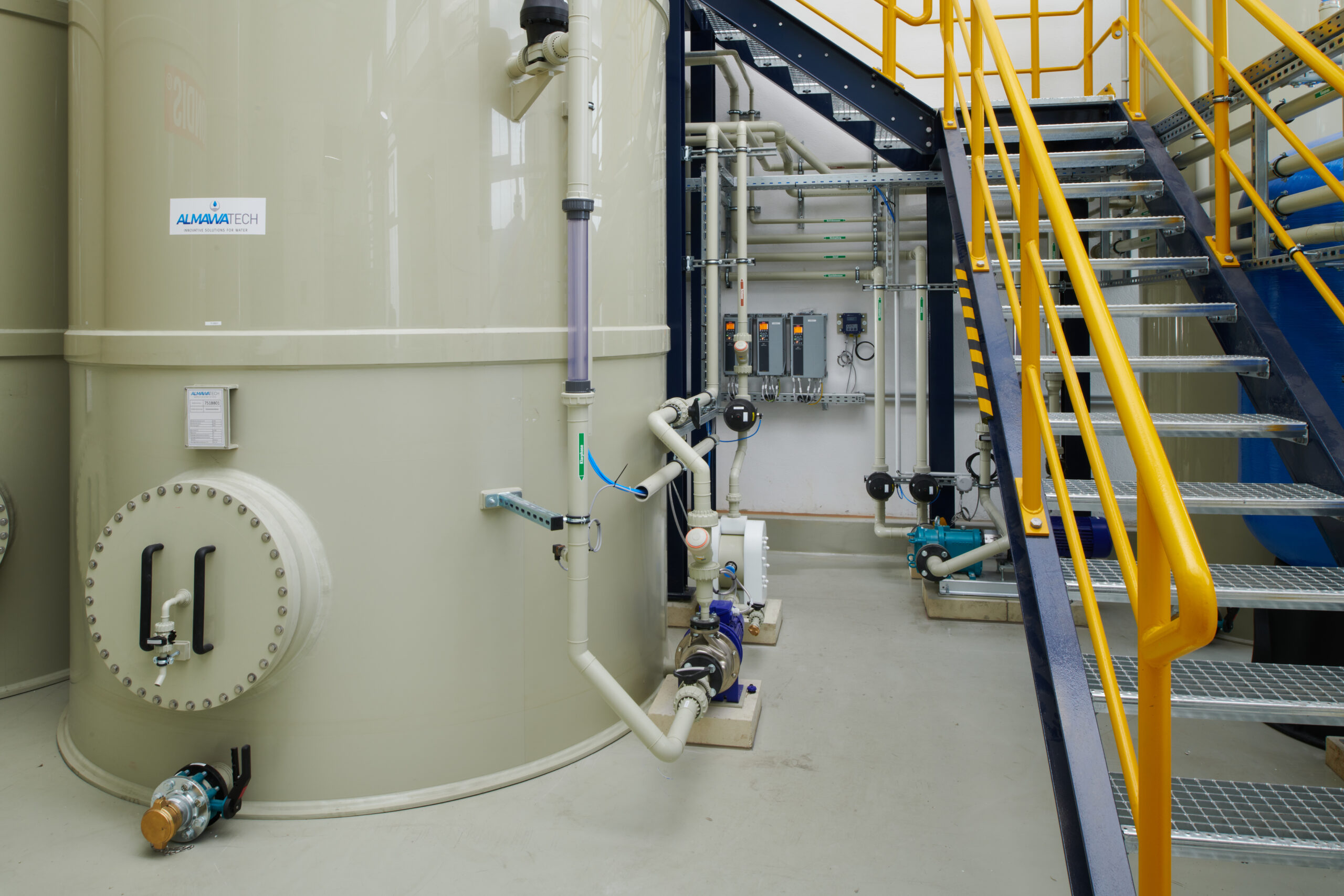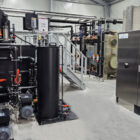A frequency converter (also known as a frequency inverter) is an electrical device that adjusts the frequency and voltage of alternating current to control the speed and torque of an electric motor. This makes it an essential part of modern water and wastewater treatment systems, as it optimizes energy consumption and extends the service life of the system components.
Table of contents
Technical background
1. mode of operation
A frequency converter converts the mains current (50 Hz) into direct current and then back into alternating current with variable frequency and voltage. This allows the speed of the motor to be controlled flexibly.
- Rectifier stage: Converts the alternating current into direct current.
- DC link: Stores the energy in the form of direct current.
- Inverter stage: Converts the direct current back into alternating current at the desired frequency.
2. parameter adjustment
- Speed control: Enables precise adjustment to the process requirements, e.g. for pumps or fans.
- Soft start: Reduces mechanical loads when starting, which reduces wear.
- Energy saving: Demand-based control of motors reduces energy consumption, especially when operating at partial load.
Applications in water and wastewater technology
Pump control
In sewage treatment plants and waterworks, pumps are often equipped with frequency converters in order to adapt the volume flow to the varying process requirements. This prevents oversizing and saves energy.

Photo: Frequency converter mounted on the wall to control the feed pumps of our CP system ALMA CHEM MCW
Ventilation systems
In biological purification stages, the oxygen supply is controlled by means of blowers. Frequency converters enable precise control of the oxygen content, which increases the efficiency of the microbial processes.
Dosing technology
Chemical dosing pumps are precisely controlled using frequency converters in order to adapt the dosing quantity to the current process conditions.
Advantages
- Energy efficiency: Reduces power consumption by adjusting the motor power as required.
- Flexibility: Enables rapid adaptation to changing operating conditions.
- Longer system service life: Soft start and lower mechanical load reduce wear on pumps and motors.
- Process optimization: Increases the efficiency of the entire system through precise control.
Challenges
- Investment costs: Frequency converters are a cost-intensive technology.
- Complexity: Implementation requires specialist knowledge to ensure optimum parameterization and integration into the control technology.
- Maintenance: Frequency converters require regular checks to ensure trouble-free operation.
Conclusion
Frequency converters are indispensable components for efficient and flexible process control in industrial water and wastewater treatment. With their ability to precisely control motors, they not only help to save energy, but also to improve system availability. ALMAWATECH uses state-of-the-art frequency converter technology in its systems to maximize the operational and energy efficiency of its systems.
For further information on our products, please feel free to contact us at any time!








